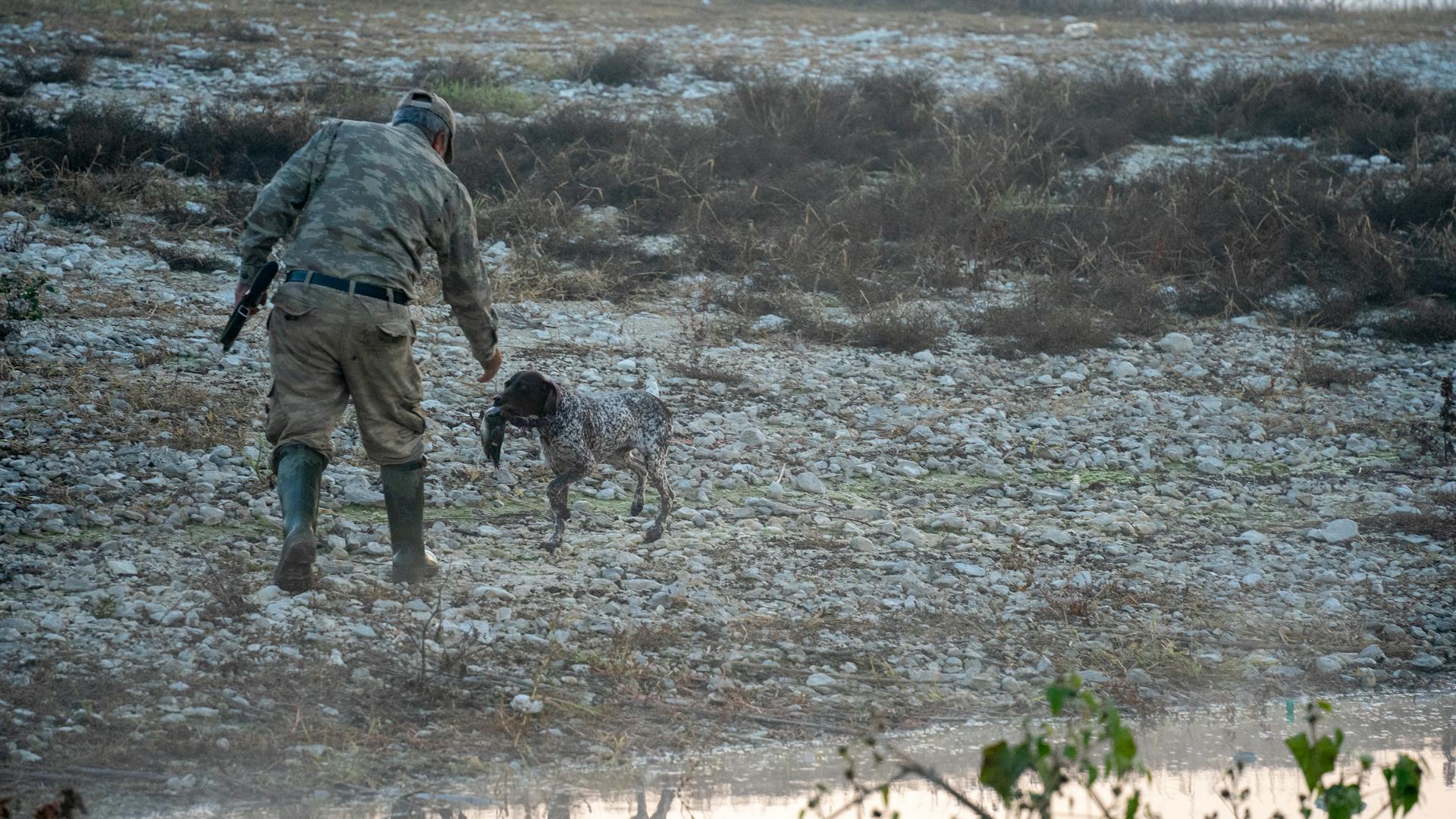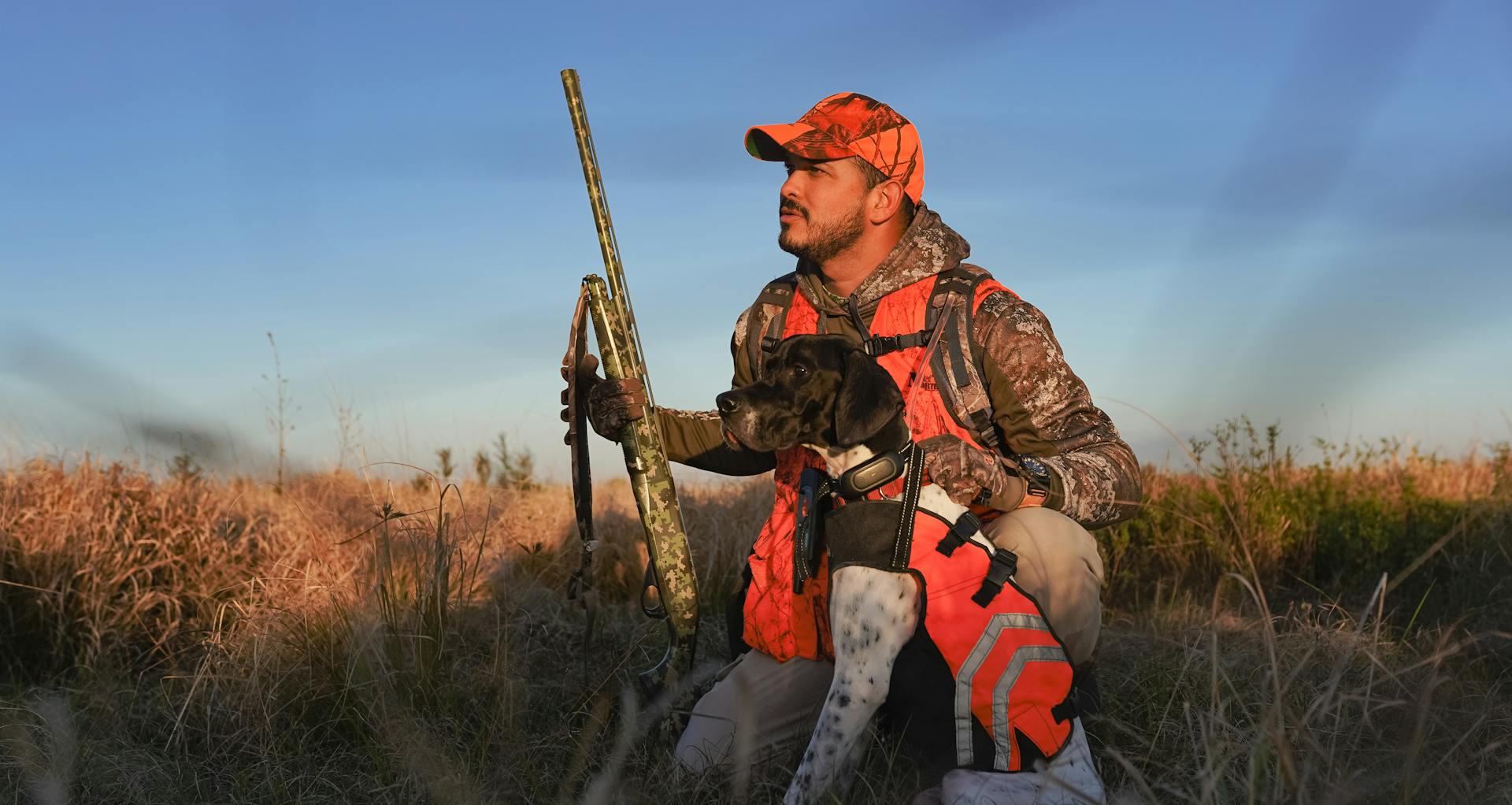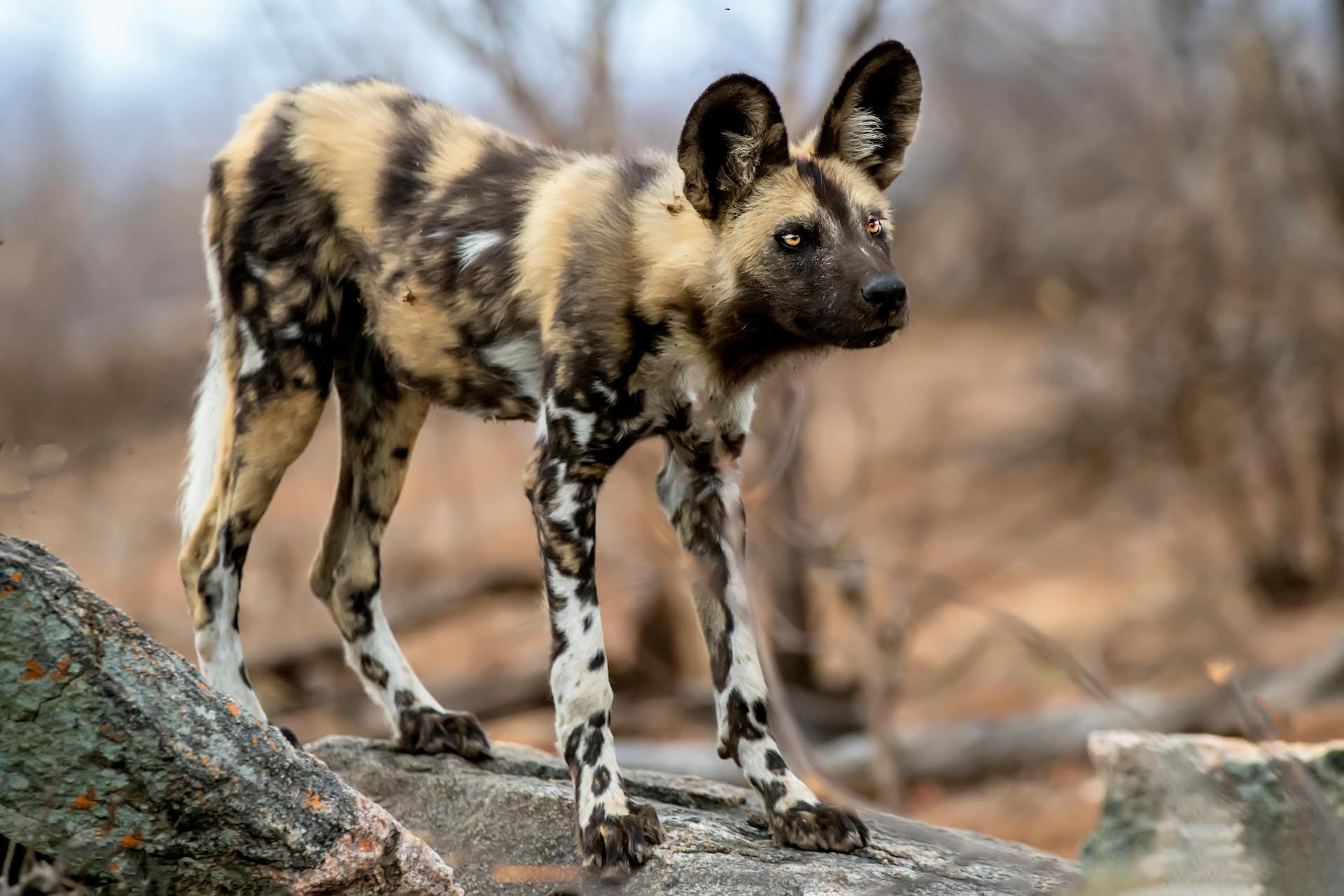
The Mountain Cur is a versatile and intelligent breed that excels in various roles, from hunting to family companionship.
Their origins date back to the 18th century in the Appalachian region of the United States, where they were bred to hunt small game.
This breed is known for its energetic and playful nature, requiring regular exercise and mental stimulation to prevent boredom and destructive behavior.
Mountain Curs are generally healthy dogs with an average lifespan of 12-15 years, but they can be prone to certain health issues, such as hip dysplasia and eye problems.
Their short, dense coats require minimal grooming, making them a great choice for busy owners.
History and Origin
The Mountain Cur is a breed with a rich and storied history that dates back nearly two hundred years. They were brought to America by European settlers who valued their ability to guard family and property, as well as chase and tree game.
Their versatility and usefulness made them an essential part of frontier life. They were used to provide meat and pelts for personal use or trade, and were often carried by settlers on expeditions.
Daniel Boone, a famous explorer and frontiersman, bred and raised Mountain Curs, relying on them for protection and hunting. He even carried young pups in protective baskets while on his expeditions.
The breed was on the verge of extinction by the end of the 1940s, but the efforts of Hugh Stephens, Woody Huntsman, Carl McConnell, and Dewey Ledbetter saved the breed and set the Mountain Cur breed standard.
The Mountain Cur likely descended from other "Cur" breeds from Europe, and was used by pioneers to catch wild game, guard their homes, and protect their livestock. They were valued for their hard work, loyalty, and affectionate nature.
The breed was assigned to the Foundation Stock Service group of the American Kennel Club (AKC) in 2017. Today, the Mountain Cur is recognized as a valuable part of American history and culture.
Appearance
The Mountain Cur is a versatile dog with a short coat that comes in a variety of colors including blue, black, yellow, brown, and brindle. They often have white markings on their face or chest.
Their weight is usually between 30 and 60 pounds, making them a medium-sized breed.
Their height ranges from 16 to 26 inches for males and 16 to 24 inches for females.
Appearance and Physique
The Mountain Cur's appearance is a true reflection of its rugged and versatile nature. Their short coat comes in a variety of colors, including blue, black, yellow, brown, and brindle.
One of the most distinctive features of the Mountain Cur is its athletic build, designed to traverse diverse landscapes with ease. This is evident in its medium-sized breed stature.
You can expect to see white markings on the face or chest in some individuals, adding a touch of uniqueness to their appearance. These markings can also include tan or brindle highlights.
The weight of a Mountain Cur typically falls between 30 and 60 pounds, making them a sturdy yet agile companion. Both males and females can weigh in at this range.
Here's a quick rundown of the Mountain Cur's size range:
Coat Color and Grooming
Mountain Curs come in a variety of colors, including blue, black, yellow, brown, and brindle, with some individuals also having white markings on their face or chest.
Their short coat is one of their most distinctive features, making them very easy to groom. They require very little grooming, only needing to be brushed once a week and bathed as needed.
Mountain Curs are prone to having sensitive skin, so it's essential to minimize bathing to avoid irritating their skin. They shed twice a year in the spring and fall, but not heavily throughout the year.
Their double coat consists of a thick top coat and a smoother undercoat, which provides protection and insulation. This coat is so effective that Mountain Curs often prefer to spend more time outdoors than indoors.
Regular nail trims are crucial to prevent painful nail breaks and bloody messes at home. Brushing their teeth regularly can also help prevent dental disease.
Mountain Curs have a low-shedding coat, making them a good choice for people with allergies. However, they do require occasional brushing to remove dead and loose hair and keep their coat and skin healthy.
Readers also liked: Smooth Haired Fox Terrier Puppies
Temperament: From Protective to Playful
The Mountain Cur temperament is a unique blend of protective instincts and playful nature. They're naturally wary of strangers, but once they know you're not a threat, they'll warm up to you.
Their protective instincts make them excellent watchdogs, and they'll fight to defend their territory and family. But don't worry, they're not aggressive towards their loved ones - they're actually very affectionate and loyal.
Mountain Curs are highly intelligent and eager to please, which makes them relatively easy to train. They thrive on structure and clear boundaries, so consistent training and positive reinforcement are key.
To get the most out of your Mountain Cur, make sure to provide plenty of physical and mental stimulation. They love to hunt and engage in outdoor activities, and they need regular exercise to stay happy and healthy.
Here are some key characteristics to keep in mind when considering a Mountain Cur as a pet:
- They're naturally wary of strangers, so early socialization is crucial.
- They have a strong prey drive, so they may not be the best fit for homes with small pets.
- They're highly intelligent and eager to please, but they can be stubborn at times.
- They need consistent training and positive reinforcement to thrive.
- They love to hunt and engage in outdoor activities, and they need regular exercise to stay happy and healthy.
Overall, the Mountain Cur temperament is a beautiful combination of protection and playfulness. With the right training and care, they can make wonderful family pets.
Health and Conditions
Mountain Curs are generally a healthy breed, but like all dogs, they can be prone to certain health issues. They can live up to 14-16 years with proper care.
Some common health problems that can affect Mountain Curs include skin infections, dry skin, parasites, and ear infections. Regular inspections and preventative treatments can help prevent parasite infestations.
Mountain Curs can also be prone to skin irritation and dry skin, which can be managed with a balanced diet and limited bathing routines. Fish oil supplements can also help prevent skin irritation.
Ear infections are another common issue in Mountain Curs, and regular ear cleaning can help prevent them. It's essential to identify the underlying cause of dry skin and ear infections to effectively address and manage the condition.
Mountain Curs are also susceptible to hip dysplasia and arthritis as they age, which can be managed with glucosamine chondroitin supplements and a well-structured diet. Regular veterinary care can also help detect and treat potential health concerns early.
Suggestion: Black Mouth Cur Health Problems
Here are some common health concerns that can affect Mountain Curs, along with some tips on how to address them:
- Skin infections and irritation: Keep their sensitive skin and coat clean, and consider fish oil supplements.
- Hip dysplasia and arthritis: Start with glucosamine chondroitin supplements and a well-structured diet.
- Ear infections: Regular ear cleaning and identifying the underlying cause can help prevent them.
- Parasites: Regular inspections and preventative treatments can help prevent parasite infestations.
- Flea and tick infestation: Regular inspections and preventative treatments can help prevent flea and tick infestations.
Care and Feeding
The Mountain Cur is a high-energy dog breed that needs both mental and physical stimulation daily to prevent destructive behavior. They require obedience training and other physical activities from puppyhood on to become a manageable and well-behaved adult.
Their short coat maintenance is relatively straightforward, resulting in low shedding, and a weekly brushing routine is enough to keep their coat sleek and remove loose fur. Regular nail trims and ear cleanings are also recommended to prevent infections.
To keep your Mountain Cur's teeth healthy, brush their teeth twice a week to remove tartar buildup and bacteria, ideally brushing daily. Their nails may not need to be trimmed as frequently if they spend a significant amount of time walking on concrete or other surfaces outside.
Related reading: Bernese Mountain Dog Coat
Grooming Essentials for Short-Coat Dogs
Mountain Curs have a short coat that's easy to care for, requiring only occasional brushing to remove dead and loose hair.
They shed twice a year, in the spring and fall, and may need more frequent brushing during these periods.
A weekly brushing routine is enough to keep their coat sleek and remove loose fur.
It's essential to minimize baths to avoid drying their skin; a good rule of thumb is to bathe only when necessary.
Regular nail trims are also recommended to prevent infections, and you should trim their nails once a month or as necessary.
Their nails may not need to be trimmed as frequently if they spend a significant amount of time walking on concrete or other surfaces outside that will naturally dull the nails.
Brushing your Mountain Cur's teeth every other day or a few times a week can go a long way in keeping their teeth clean and healthy.
Good oral hygiene can help prevent dental disease, so make sure to prioritize this aspect of their grooming routine.
On a similar theme: Black Mouth Cur Teeth
Comprehensive Care
The Mountain Cur's high energy levels require a comprehensive care plan that includes exercise, grooming, and nutrition.
To prevent destructive behavior, Mountain Curs need both mental and physical stimulation daily. They should have plenty of obedience training and other physical activities from puppyhood on.
Mountain Curs have a double coat that helps them stay comfortable in both hot and cold conditions. They shed a low amount throughout the year but most heavily in the spring and fall.
A weekly brushing routine is enough to keep their coat sleek and remove loose fur. It's essential to minimize baths to avoid drying their skin.
Mountain Curs need their nails trimmed regularly, about once a month or so. A fractured nail can be painful for your dog and a bloody mess for your home.
To maintain their dental health, brush your Mountain Cur's teeth twice a week to remove tartar buildup and bacteria. Daily brushing is ideal, but every other day or a few times a week can also go a long way.
Expand your knowledge: Long Coat Chesapeake Bay Retriever
Here's a breakdown of the Mountain Cur's exercise needs:
- 90 minutes of vigorous activity daily
- Long, challenging walks and rigorous playtime
- Activities that tap into their stamina and agility, such as hiking, running, or participating in dog sports
A balanced diet is essential to fuel their adventurous spirit. Mountain Curs thrive on an active lifestyle and should have a high-quality commercial dog food that meets their nutritional requirements for each life stage.
The ideal Mountain Cur diet should be formulated for a medium to large breed dog with high energy levels. Their dietary needs will change from puppyhood to adulthood and will continue to change into their senior years.
Puppies and Training
Getting a Mountain Cur puppy requires patience and persistence. You may need to get on a waitlist for a reputable breeder through the OMCBA database.
Training a Mountain Cur puppy is crucial for their development and your relationship. They require daily mental stimulation, which can be achieved through tasks like puzzle toys and feeders, or even accompanying hunters.
To prevent fear-based aggression and anxiety, socialization should begin in the puppy stages. Exposure to various noises, meeting diverse groups of people, and positive encounters with other animals will promote pet-friendly development.
To establish dominance early on, it's essential to establish a consistent routine and use firm but patient commands. This will help your Mountain Cur recognize you as the pack leader.
Here's a socialization checklist for Mountain Curs:
Puppies
Puppies can be challenging to find if you're looking for a Mountain Cur, as they're a rare breed.
You'll want to look for reputable breeders through the OMCBA database to increase your chances of getting a puppy.
Getting on a waitlist for an available litter is a common practice for Mountain Cur breeders.
Mountain Cur puppies may not be readily available in rescues or shelters due to their rarity.
However, some rescue associations take in Mountain Curs for adoption, often due to owners taking on the breed without being prepared.
Effective Training Strategies
Effective training strategies for puppies require a deep understanding of their breed-specific needs. Mountain Curs, in particular, are intelligent and thrive on mental stimulation.
To keep them engaged, provide daily tasks or jobs, such as accompanying hunters or participating in puzzle toys and feeders. This will help prevent boredom and destructive behavior.
Establishing dominance early on is crucial, as Mountain Curs will try to achieve pack leader status. Consistent routine and firm, patient commands will help establish you as the pack leader.
Socialization is also essential, as Mountain Curs can be initially wary of unfamiliar faces. Expose them to various stimuli, people, and animals from an early age to promote a friendly and well-adjusted disposition.
To achieve this, create a socialization checklist that includes exposure to different noises, meeting diverse groups of people, and positive encounters with other animals. This will boost their confidence and promote pet-friendly development.
A well-rounded training plan should include leadership establishment, socialization, and obedience training. Here's a breakdown of what to focus on:
By following these effective training strategies, you'll be well on your way to raising a well-adjusted and obedient Mountain Cur puppy.
Frequently Asked Questions
Is a Mountain Cur a good house dog?
Mountain Curs can make great house dogs if you provide regular exercise and mental stimulation. With proper socialization, they're generally well-natured and good with children and other pets
What are the behavioral problems with Mountain Cur?
Mountain Curs can exhibit behavioral problems such as digging, separation anxiety, and destructive behavior due to lack of housebreaking. Learn how to overcome these issues with the guidance in "Mountain Cur 101: Owner's Guide
How rare is a Mountain Cur?
The Mountain Cur is a relatively rare breed, preserved by a few passionate breeders after nearly becoming extinct during World War II. You can find them from reputable breeders who are committed to preserving this historic dog.
What is a Mountain Cur dog mix?
A Mountain Cur dog mix is a versatile and intelligent breed, known for its strong hunting instincts and courageous nature. Originating from the early pioneer era, this breed excels as a loyal companion and working dog.
Are Mountain Cur dogs smart?
Mountain Cur dogs are highly intelligent and thrive on mental stimulation, making them well-suited for dog sports and active owners. However, their intelligence can also make training challenging if not approached with consistency and leadership.
Featured Images: pexels.com


